

As we all know, the hobby’s use of card cleaning has gotten entirely out of control recently. There were signs that folks were cutting back after PSA addressed the Kurt’s Card Care scandals, but it looks like that was somewhat premature.
For some people, cleaning cards before they are submitted has become the standard operating procedure. That is why PSA has had to crack down further on this phenomenon. But sadly, it does not appear that the company can detect the use, at least not yet.
So they have to rely on social media to find these cases. Find the whole story of how PSA cracks down on card cleaners right here.
The story starts with a post on ACA Collectibles featuring a 2018 Panini Contenders Optic Luka Doncic Red Auto card. Before the card was submitted, it had a beautiful and sharp blue pen auto. A photo of it in a PSA slab featuring the coveted PSA 10 grade shows the autograph looking suspiciously faded.
Rather than complain about the card returning with a faded auto, ACA Collectibles enthusiastically posted the picture. It says, “BANG!” clearly referring to the PSA 10 grade. So, we can assume that this change did not alarm the individual running the account. Most likely, it was caused by the card cleaning routine they tend to use before submitting.
The account has 2,885 followers and promotes the slogan “always buying high-end raw” cards. Its business model is straightforward: buy lovely raw cards, treat them with card care products, and get the highest possible grade from PSA.
That was one of many cases. A 2020 Panini Contenders Optic Jordan Love Orange Auto Ticket also appears to have undergone the same treatment. A picture of the card as a PSA 9 with a sharp and excellent-looking auto appeared on the ACA Collectibles website.
The account operator then broke it out of the slab and posted a picture of it raw. It then reappeared in a later picture as a PSA 10 with a faded autograph. In the case of the Jordan Love card, the auto is less faded across the board.
There, the problem is primarily visible on the right-hand side. This is a pattern of behavior.
One of the best accounts for finding altered cards is @tiffanycards. They operate a database of altered cards and have paid close attention to this story.
They have long been involved in the card cleaning controversy, exposing several instances of use in the past. Therefore, we were waiting for their contribution here.
After perusing the submissions associated with the ACA Collectibles account, they pointed to another card, with the following Tweet: “Here is another example of a fading auto on a card by acacollectibles 2022 Kenny Pickett #127 Contenders Auto PSA 10 cert# 77693024 The Auto is a match and the mark on the back is a match.”
However, if this one is altered, PSA must still be made aware of the problem. It remains certified by the grading company as a PSA 10 Gem Mint.
But don’t go looking for these cards now on that account. All of the suspicious-looking auto examples have been removed from the account, which, incidentally, you can find here.
Well, almost all of them. After reviewing the remaining posts on this account, I see that some suspicious cards are still available. Look at these two examples above, where some autograph fading appears visible. Nothing conclusive. However, considering the previous pattern of behavior, the use of card card products is likely.
The account has auto-cards that appear in before-and-after versions that seem legitimate. They came out of grading looking identical to the pictures from before.
However, that could mean that the individual did a better job of avoiding the autograph or that the photo was taken after the cards were treated. It is hard to say.
Either way, removing the more suspicious posts seems like an admission of guilt.
The Tweet read: “Is auto removal alteration? Will PSA deactivate this? It is truly wild that people are willing to deface and ruin cards like this just to attempt a better grade. Wax on, wax off!!!”
The Tweet tagged several accounts, one of them being the top YouTube card sleuth, Dan the Card Man. By the way, if you are not following his account, you are missing out. But uncharacteristically, he didn’t get it at first, replying, “What am I missing here.”
Some of the sleuths who uncovered this issue contacted PSA with details on the altered cards. To their credit, they only took a couple of days to act.
If you search for the certification of the Luka card in question, 63374550, PSA has listed it as “N5: Altered Stock.” That means the grade it was given is no longer valid.
That was the less surprising element here. What was unexpected was how far they punished the individual who submitted these cards. They didn’t just decertify the Luka card.
It appears they also did the same to all the other cards included in this submission. Without an auto, a Shohei Ohtani rookie card also received the “N5: Altered Stock” designation. It was one certification number away from the Luka card.
The statement here is clear. PSA will dismiss anything you submit alongside a treated or doctored card. That is essential in cracking down on this sort of thing. You are more likely to gamble on the value of one card than several in a submission.

However, this may not be going far enough. PSA should consider creating a blocklist of users that sell doctored cards. They should not accept further submissions from an address that is doing so. There are ways around that. For example, you can use a PO box or have the stuff delivered to your cousin. But it still sends a message.
Remember, folks, this is why you want to check the certification number before you buy any cards.
Many believe card cleaning is a victimless crime or a legitimate way of caring for one’s collection. However, the way these autographs are faded, some would say defaced, by the practice raises some critical questions.
Here, we clash between the push in the current hobby to constantly make as much money as possible and the collecting aspect. Grading was supposed to distinguish cards that are more attractive and in better condition from those that are less so. However, in this case, the grading system rewards acts that make the cards look less appealing.
In some cases, card cleaning improves the look of the cards. But that is not the case here. Many of us are still interested more in the cards’ look than the grades. However, the current grading systems create a perverse incentive that sometimes harms the cards.
However, the biggest problem is what card cleaning products do to cards long-term. The biggest card cleaning company in the business is Kurts Card Care.
They promise that their products “do not stay on the card. You remove it, and when you do, it removes the minor issues that affect the card surface. My products are great at removing anything that happens to be on the cards and getting them back to a factory-like finish when possible.”
But how do we know that there is no residue and that the compound will not erode the quality of the cards in the long term? As I wrote, these products work very well at cleaning cards, but: “There is one caveat. People haven’t been using these products for long, and we don’t know the long-term effects of the stuff on our cards. There are many horror stories about people using other chemicals on the cards, which initially seemed fine and then eroded the paint or caused them to change color.”
The official PSA position is that “PSA will not grade cards that bear evidence of trimming, re-coloring, restoration, or any other forms of tampering, or are of questionable authenticity.”
The grading giant’s attempts to deal with this problem have been a work in progress. While there wasn’t an official rule against cleaning cards, the terms and conditions on the PSA website have changed.
Here is the relevant part:
“You represent and warrant that any item submitted for any PSA Grading Service is genuine, and you have no knowledge and no reasonable basis to believe that the item is a “Doctored” item. You affirm your obligations concerning Doctored items outlined in these Terms. For purposes of these Terms, “Doctor,” “Doctored” or “Doctoring” means the alteration of the appearance of an item by things such as, but not limited to, trimming, re-coloring, bleaching, power erasing, cleaning, waxing, re-backing or any other form of restoration used to enhance the appearance, condition or content of an item.“
The crucial part here is the addition of cleaning and waxing. It technically makes a card that underwent any form of cleaning ineligible for grading.
In addition, customers agreeing to the terms and services are obligated to clear their cards only after submitting them.
According to the Terms and Conditions: “You agree that you will not Doctor items or participate in any way in Doctoring items or submitting any items to PSA for grading which you know or have reason to believe have been Doctored in any way.”
Whether altering cards is legal has become a philosophical question. One school of thought insists that refurbishing works of art should be allowed, as should doing so with cards. That is a conversation worth having.
However, it is a debate to be had openly. The problem here is the secrecy of the issue. People allegedly cleaning cards usually do not alert potential buyers that this is happening. That is immoral for two reasons.
First, we don’t know the long-term consequences of these chemicals. Second, PSA has made it clear that it will not grade cards that are cleaned. So if the company discovers a card you sold to someone else was cleaned, they may decertify it. And due to no fault of the buyer.
Either way, the current rules for grading are clear. You cannot use cleaning tricks, and the terms and conditions make it clear that it is the users’ responsibility not to send in doctored cards. Indeed, it is incumbent on the customer to avoid sending in cards, even if there is a reason to think it might have been doctored in any way.
The case of the cards submitted by ACA Collectibles is yet another indication that PSA, despite changing its attitude towards card cleaning, remains incapable of reliably detecting card cleaning. PSA missed the cards flagged here and possibly countless more during the grading process.
In this case, as in several others, the problem was detected not by PSA but rather by the sharp observations of social media users.
In truth, the best way to avoid detection on these matters is not to post show-off videos or pictures of your PSA 10s—certainly not with a before-or-after picture. But the more clever operators in the hobby cleaning cards already know that.
Perhaps most importantly, the lesson here is to trust your eyes. We have gotten so used to PSA acting as the arbiter of what a valuable card is and what is not that many of us put the grade ahead of what the card looks like.
The comedian Groucho Marx once asked, “Who will you believe, me or your lying eyes?” He meant it as a joke, but that is what many people do. If you see a faded autograph in a PSA 10, that doesn’t make the auto any less faded. A PSA 10 is not a reason to avoid scrutinizing a card for flaws.
I hit a SWEET auto from the #1 overall pick at PCB hobby
The Ultimate 2024 Football Card Brand Tier List (Panini vs. Topps and more!)
2025 Topps All Star Game Mega Box Product Review
Ripping the new Topps All Star Game mega box.
Is this new sports card store the BEST VALUE around?
I Tested eBay Auction Promotions So You Don’t Have To!
I deep-dove on Fanatics Collect so you don't have to (but should you?)
Panini is launching a WNBA Product at $30,000!?
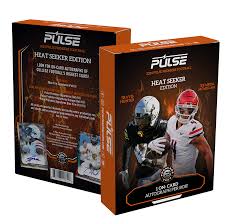
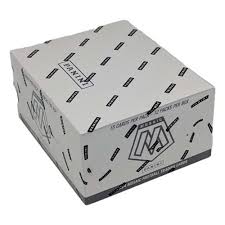
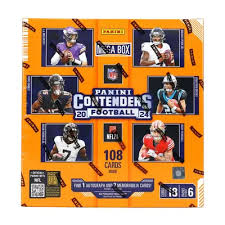
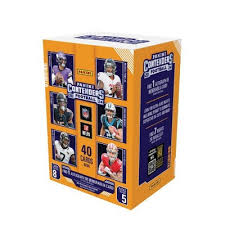
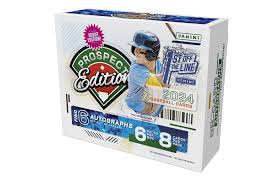
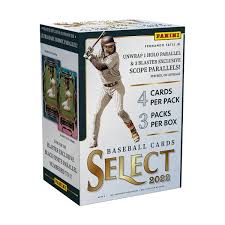
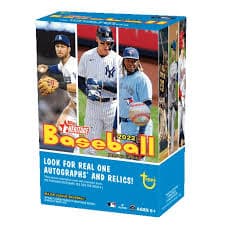
2022 Topps Heritage Baseball Blaster Box Configuration: 7 Packs per Box – 9 Cards per Box. Plus 1 extra pack.
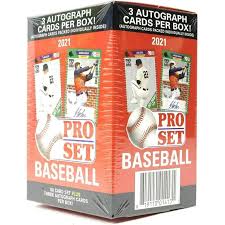
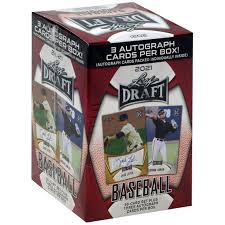
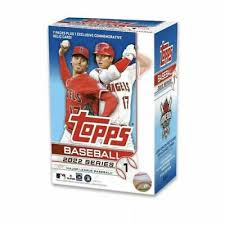
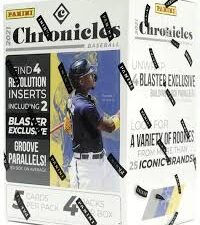
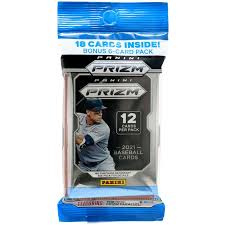
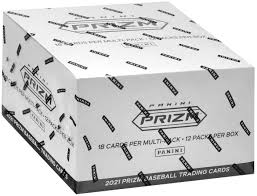

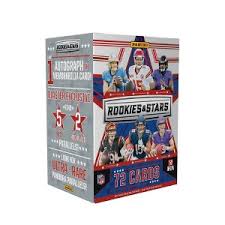

Keep up on breaking Sports Card News, our latest articles, product specials and exclusive content with expert analysis of hobby trends.

© Copyright 2025 - All rights reserved Cardlines.com / Media Techs LLC - Sports Card News, Reviews, Releases and BREAKS - #thehobby.
Important: When you click on links to various merchants on this site and make a purchase, this can result in this site earning a commission. Affiliate programs and affiliations include, but are not limited to, the eBay Partner Network.
Sports Card Scavenger Hunt! (5,000 Subscriber Special!)
Cardlines 14 hours ago